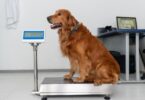Man’s best friend also struggles with the same pesky problem many humans do: allergies. Every pollen season, these common dog allergies cause discomfort, affect quality of life, and sometimes lead to more serious health issues if left untreated.
Knowing how to recognize and prevent common dog allergies is essential for ensuring your furry friend stays healthy and happy.
In this blog, you’ll learn what can lead your four-legged friends to be uncomfortable and fidgety and how you can ultimately help soothe them.
What Are Common Dog Allergies?
Dog allergies occur when their immune system reacts abnormally to certain substances, also known as allergens.
When exposed to an allergen, a dog’s body may respond with symptoms such as itching, redness, or gastrointestinal distress. Each allergy can be expressed in different ways, making detection very important.
There are three main types of common dog allergies depending on the source of the allergens:
- Environmental Allergies: Caused by pollen, mold, dust mites, or other inhaled antigens.
- Food Allergies: Resulting from reaction to ingredients in a dog’s food.
- Flea Allergy Dermatitis: An allergic reaction to the saliva of fleas.
Common Symptoms Of Common Dog Allergies
Symptoms of common dog allergies could be mild or grave. If your dog exhibits any of these symptoms, it is crucial to visit the vet to determine the cause and find a proper treatment plan.
Some common symptoms of an allergic reaction include the following:
- Itchy Skin: Recurring scratching, licking, or chewing at specific spots on your dog’s body, such as the paws, ears, or belly.
- Red Or Inflamed Skin: Irritated spots can occur and lead to hair loss or scabbing.
- Chronic Ear Infections: Ongoing ear problems can be an allergic response, especially when it occurs with head shaking or excess wax.
- Watery Eyes Or Sneezing: Respiratory signs are usually indicative of environmental allergies.
- Vomiting Or Diarrhea: Commonly, digestive disorders show signs of food allergies.
- Hot Spots: Raw, moist, inflamed areas on the skin resulting from excessive licking or scratching.
Causes Of Common Dog Allergies
In order to help alleviate and prevent common dog allergies effectively in dogs, it is essential to know the common sources of allergies:
Environmental Allergens
- Dogs are sensitive to seasonal pollen, mold spores, or indoor dust mites. In most cases, the allergens are inhaled or absorbed through the skin.
- Between 2008 and 2017, environmental allergies increased by 30.7% in dogs.
Food Allergens
- Ingredients such as beef, chicken, dairy, wheat, or soy are potential food allergens. However, food intolerances are more common than absolute true food allergies.
Fleas
- Flea bites cause severe itching, especially in dogs with flea allergy dermatitis. Even one bite can cause extreme distress.
- Between 2008 and 2017, flea allergies increased by 12.5% in dogs.
Household Products
- Some dogs are allergic to cleaning products, perfumes, or even certain shampoos.
Medications Or Vaccines
- Although this is rare, some dogs have an allergic reaction to medication or a vaccine. These reactions may be mild or fatal by causing anaphylaxis.
Preventing Common Dog Allergies
Though it is impossible to eliminate all allergens, several proactive measures can help minimize your dog’s exposure and reduce the risk of allergic reactions.
Follow these steps to keep your furry friend free of allergies.
- Maintain a clean, dust-free environment to whatever extent possible.
- Vacuum frequently to reduce dust and pollen.
- Wash your dog’s bedding regularly.
- Use air purifiers to reduce airborne allergens.
- Use veterinarian-recommended flea preventatives year-round.
- Maintain a flea-free yard and home.
- Feed your dog high-quality, limited-ingredient diets if food allergies are suspected.
- Avoid feeding table scraps or treats that contain common allergens.
- Bathe your dog regularly with hypoallergenic shampoos to remove allergens from their coat.
- Brush your dog frequently to reduce shedding and skin irritation.
- For dogs with severe environmental allergies, immunotherapy (allergy shots) can help reduce sensitivity over time. However, do consult your vet before this.
Treating Common Dog Allergies
Treatment for common dog allergies will depend on the type of reaction and its severity. Some treatments may include:
- Medications: Antihistamines, corticosteroids, or immune-modulating drugs to alleviate symptoms.
- Topical Treatments: Creams, sprays, or medicated shampoos to soothe inflamed skin.
- Dietary Changes: Hypoallergenic or elimination diet trials.
- Flea Control: Consistent use of flea preventatives.
- Allergy Shots: To reduce sensitivity to environmental allergens over time.
If your dog persists with allergic symptoms or their condition deteriorates, see a veterinarian. A vet visit may help prevent complications, like secondary skin infections, and keep your dog healthy.
Conclusion
Recognizing and preventing common dog allergies is key to keeping your furry friend comfortable and healthy. Understanding the signs, causes, and preventive measures will help you take proactive steps in managing your dog’s allergies.
Work closely with your veterinarian to develop a tailored plan that meets your pet’s specific needs, ensuring many happy and itch-free years together. Prolong your dog’s life and boost their quality of life by being an aware dog owner and a responsible best friend!











